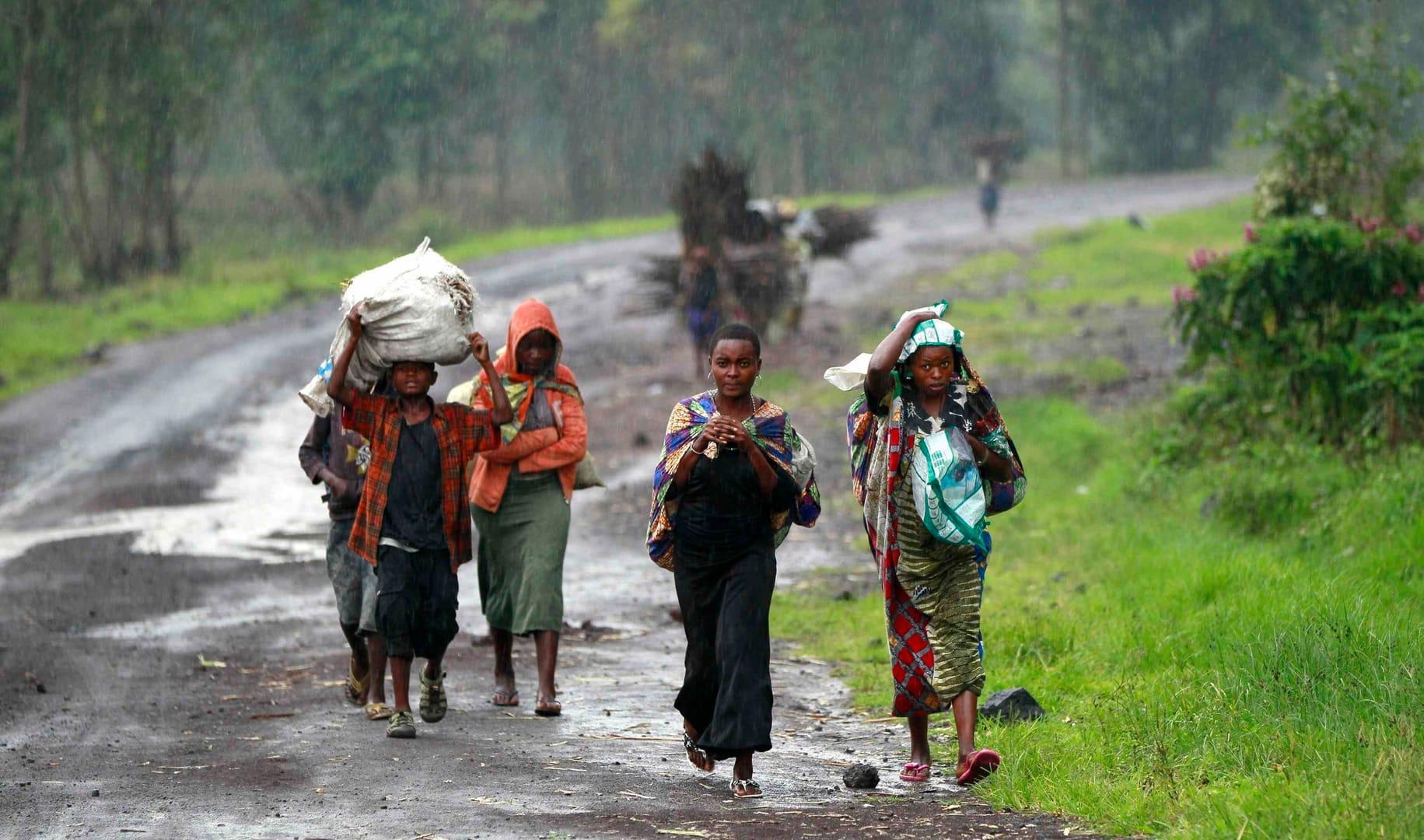YAOUNDÉ, Cameroon – A leading Catholic aid agency has condemned what it calls “cyclical violence and continuing human rights abuses targeting civilian populations in North Kivu and Ituri Provinces” of the Democratic Republic of Congo.
Armed groups have been active in the area for decades, attacking civilians and battling each other and government forces for control of the region’s mineral resources.
The Office of the United Nations High Commissioner for Human Rights (OHCHR) said Feb. 2 that it there had been a significant increase in attacks against civilians in the area. The UN noted that nearly 850 civilians were killed by rebel fighters belonging to the Allied Democratic Forces (ADF) in Ituri and North Kivu provinces in 2020.
The armed militia, originally from Uganda, has been fighting in the eastern Congo for over 20 years.
“Given the widespread and systematic nature of the attack directed against the civilian population, some of the documented human rights violations may constitute crimes against humanity,” said OHCHR spokesperson Marta Hurtado in Geneva.
RELATED: Congolese bishops call for special court to try war crimes
Between Dec. 11, 2020 and Jan. 10, 2021, at least 150 people have been killed in the eastern Congo and more than 100 others kidnapped.
“CRS echoes recent statements by United Nations Humanitarian Coordinator David McLachlan-Karr as well as the Episcopal Conference of the Democratic Republic of the Congo (CENCO) calling for peace and condemning cyclical violence and continuing human rights abuses targeting civilian populations in North Kivu and Ituri Provinces.,” said Sylvestre Kimbese, Project Manager for Catholic Relief Services’ Justice and Peace Department in Democratic Republic of the Congo.
Catholic Relief Services is the international develop agency of the U.S. Catholic bishops.
Kimbese said the violence was driven by several factors, most notably, non-state armed groups – both foreign and local –which continue to target civilian populations and confront elements of the Congolese military and United Nations peacekeepers deployed in the region.
RELATED: Sexual violence being used as weapon of war in eastern Congo
“These groups are numerous and physically dispersed, operating over a wide swath of territory with frequently poor infrastructure, rendering responses by security services difficult,” he told Crux.
“The conflicts are sustained, at least in part, by competition for control over local resources – including minerals and access to parks and protected areas for poaching and charcoal production activities – and cycles of targeted and at times retaliatory attacks carried out by armed groups and other actors on local populations,” he added.
In 2018, the country’s bishops said there was a cynical plan to balkanize the Congo.
“In the Grand Kasai, in North and South Kivu, in Ituri, the presence of assailants who sow death and desolation makes one think of a set up plan of occupation and balkanization,” the bishops wrote.
Earlier this year, Bishop Melchisedech Sikuli Paluku of Butembo-Beni in Congo’s North Kivu province called on the rest of the world to help.
In a video distributed January 14, 2021 by the German branch of Aid to the Church in Need, the bishop appealed to the international community to “hear my country’s cry of suffering and help its poor people. Given the Calvary we’ve been forced to undergo for so long, we feel ourselves abandoned.”
RELATED: Congolese bishop says stop the ‘chain of massacres’
As the fighting intensifies, so too is the humanitarian crisis. At least 5 million people have been displaced in the east, with 900,000 seeking refuge in neighboring countries.
“An increase in violence and accompanying humanitarian needs does create greater needs for CRS and other humanitarian agencies,” Kimbese told Crux.
“CRS believes that the response to this chronic instability must include both immediate life-saving aid to vulnerable and conflict-affected populations, but also long-term programming focused on creating an enabling environment for peace to take root,” he said.
“This means promoting social and economic opportunities that may dissuade young people from joining armed groups and providing families the tools and approaches to improve social cohesion and create resilient, peaceful, and connected communities,” Kimbese added.













